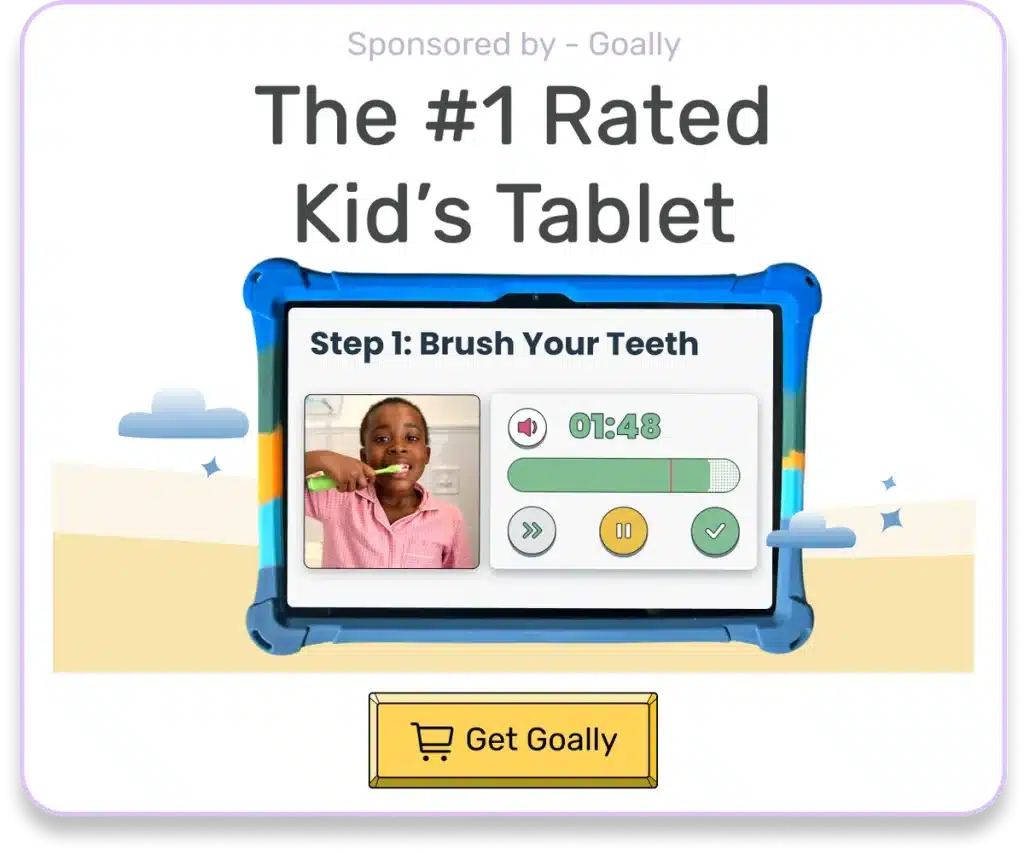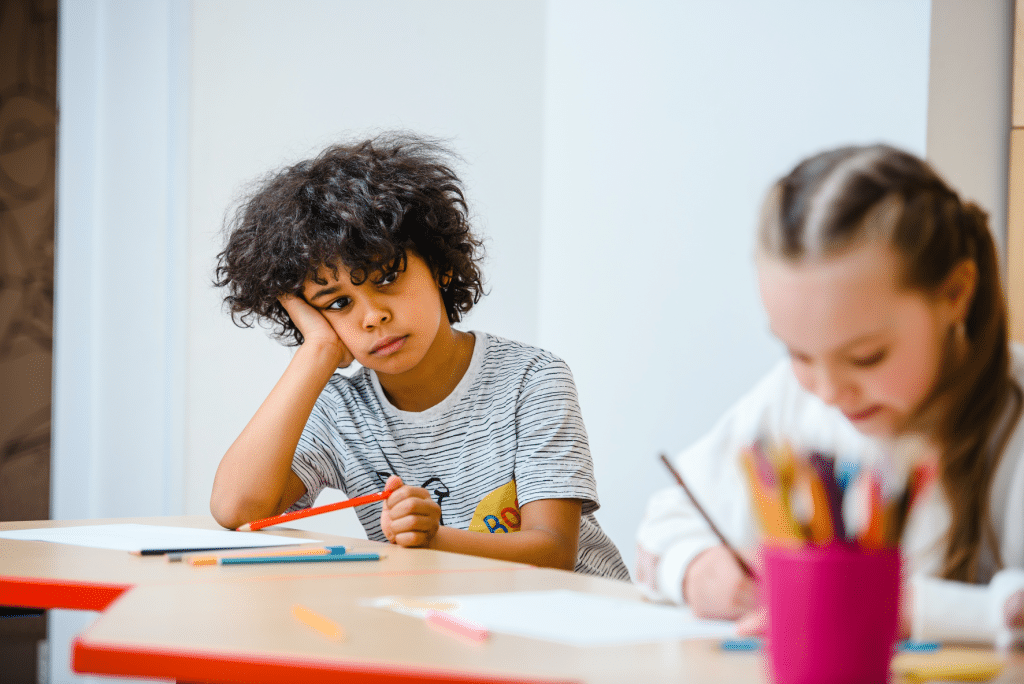Studies have found that by the age of 4 years, as many as 40% of children have sufficient problems with attention to be of concern to parents and teachers. My child is smart but can’t focus – is it ADHD or something else? ADHD (Attention Deficit Hyperactivity Disorder) is a disorder that affects both children and adults. It is characterized by various symptoms, such as hyperactivity, impulsivity, and inattention. However, gifted children who have exceptional abilities in one or more areas may also struggle with attention issues.
Table of Contents
This article will help parents understand why gifted children may have issues with attention and how to address them. Additionally it will discuss the differences between attention problems and ADHD, the importance of accurate diagnosis, and how to communicate with children about their focus issues.
Why Gifted Children have Issues with Attention
Gifted children have unique needs and challenges. They may experience social isolation, pressure to perform, and may not fit in with their peers. Further, gifted children also tend to have high energy levels and may have a hard time sitting still or focusing for long periods.
Research has shown that there is a higher prevalence of ADHD among gifted children than in the general population. One current theory is that the intensity and complexity of the gifted child’s mind can make them more susceptible to attention issues.
Overexcitabilities in Gifted Children
Overexcitabilities are intense and heightened sensory and emotional experiences that are common in gifted children. They may have a heightened sensitivity to noises, textures, and emotions. This overexcitability can lead to distraction and difficulty focusing on tasks.
Moreover, gifted children’s overexcitability can lead to attention issues because they may become easily overwhelmed and overstimulated. Smart children may struggle to filter out distractions and focus on the task at hand.
Not all Attention Problems are ADHD
Attention problems refer to difficulties with paying attention, sustaining focus, and inhibiting impulsive behaviors. These problems can result from a variety of factors, including anxiety, depression, and stress.

Read more: Learning and Attention Disorders in Kids
Untangling ADHD from Other Attention Challenges
If you’re thinking, “My child is smart but can’t focus,” it’s crucial to distinguish between ADHD and other attention problems. You see, ADHD is a distinct neurodevelopmental disorder with its own diagnosis checklist. But don’t forget attention issues can sprout from various conditions. Hence, it’s worth checking off other potential causes before landing on an ADHD diagnosis.
Common Triggers of Attention Problems
- Stress
- Sleep deprivation
- Anxiety
- Learning disabilities
Pinning down the root cause is the key to crafting an effective treatment plan. Proper diagnosis means accurate treatment, ensuring your child gets the right kind of support. But heads up, if these attention issues remain unaddressed, they could stir up academic and social hurdles.
Just remember, attention challenges don’t set the limits of your child’s intelligence or potential. With the right backup and tactics, your little Einstein can move past these hurdles and shine bright.
Read More: Good Stress Relievers For You and Your Child

Read more: Kids Giftedness Test
Chatting About Your Kiddo’s Focus Challenges
Ever thought, “My child is smart but can’t focus“? If so, fostering an open dialogue about their focus difficulties can be a game changer. Trust me, it lets them feel understood and less isolated. Importantly, make it a point to stress that these focus issues do not cap their intelligence or potential. Just a hiccup in the journey!
When breaking down attention problems, remember to keep your language and examples age-friendly. Explain that everyone’s got their own set of strong points and hurdles. And guess what? Your child’s focus issue? It’s not a brick wall. An obstacle can be tackled with the right tactics and backing.
Tips for Supporting Your Focused Genius
- Always cheer on their achievements, big or small. It’s all about progress.
- Help them craft better-focused strategies. Teamwork makes the dream work!
- Most importantly, ensure they know focus issues aren’t personal failings. It’s just something many of us have to deal with, kiddo or adult!
Remember, being there for your smart child as they navigate focus issues is paramount. And with the right mindset and approach, you’ll soon see them conquering their challenges like a champ.
Try Goally For Your Child With ADHD
Goally helps kids with ADHD stay focused and build skills. Unlike a Kindle or an iPad that kids get easily distracted on, Goally has no YouTube, no social media, no web browser, and especially no ads.
Goally uses game play as a points-based motivator for your kiddo with ADHD and helps them learn emotional regulation skills. It’s simple to set up and has an expert-informed design.

Tips for Parents to Help their Children Focus
- Develop a Routine: A consistent routine can help children with focus issues stay on track. Parents can help their child develop a structured routine that includes regular times for homework, meals, physical activity, and relaxation.
- Reduce Distractions: Parents can help their child focus by minimizing distractions in their environment. This can include creating a quiet study space, turning off electronics during homework time, and avoiding multitasking.
- Encourage Physical Activity: Physical activity can help children with focus issues burn off excess energy and improve their concentration. Parents can encourage their child to engage in regular physical activity, such as sports, dance, or yoga.
- Use Positive Reinforcement: Parents can use positive reinforcement to motivate their child with focus issues. This can include praising their child’s efforts, setting achievable goals, and rewarding their child for completing tasks.
Tips to for Kids to Help Themselves Focus
- Develop Good Study Habits: Good study habits help children with focus issues stay on task and be productive. This can include breaking up tasks into smaller, more manageable chunks, using a planner or to-do list, and taking regular breaks.
- Time Management Techniques: Time management techniques help children with focus issues prioritize tasks and stay organized. This can include setting a timer for tasks, using a calendar to track deadlines, and estimating how long tasks will take.
- Mindfulness and Relaxation Techniques: Mindfulness and relaxation techniques can help children with focus issues reduce stress and increase their ability to concentrate. This may include deep breathing exercises, meditation, or yoga.
- Finding Ways to Make Learning Fun: Children with focus issues may be more engaged and motivated when learning is fun and interactive. Parents can help their child find ways to make learning more enjoyable, such as using educational games or incorporating hands-on activities.
Overall, there are many strategies and techniques that can help children with focus issues. With patience, support, and persistence, children can learn to overcome their challenges and thrive.
Goally | Apps To Support Child Development
Looking for fun ways to help your child learn life skills? Try Goally! The Goally tablet comes with award-winning learning apps and video classes to help kids develop the skills they need to become independent with FUN & evidence-based practices.

Our apps teach executive function, language, emotional regulation, finger dexterity skills, and more.
As your child develops new skills, you can increase the difficulty level of the tasks in the app to challenge and motivate them even further. This helps your child grow and progress at their own pace, while also keeping them engaged and excited about their development.

Final Thoughts
In this article, we discussed why your child might be smart but can’t focus, the differences between attention problems and ADHD, and how to communicate with children about their focus issues. We also provided tips for parents to help their children focus, and tips to help kids to help themselves focus. Parents concerned about their child’s focus issues should seek help from a qualified professional, such as a pediatrician, psychologist, or educational specialist. Seeking help early can make a big difference in a child’s academic and social success.
FAQs About “My Child Is Smart But Can’t Focus”
What can I do if my child is smart but can't focus? Engage your child with interactive learning tools like visual schedules, emotional regulation apps, and reward systems to boost focus and attention.
What are some tools to help my smart child who has trouble focusing? Visual schedules, emotional regulation apps, and reward systems can be beneficial in helping your child focus and manage their attention better.
Why can my smart child have issues with focusing? Attention issues in smart children can arise due to a variety of factors like stress, sleep deprivation, anxiety, or learning disabilities.
Can my child's inability to focus affect their intelligence or potential? No, attention issues do not define your child's intelligence or potential. With the right strategies and support, they can overcome these challenges.
How can I identify if my smart child has ADHD or other attention problems? Consult a healthcare professional for a comprehensive diagnosis, as ADHD and other attention problems can have different causes and require different strategies for management.
This post was originally published on 03/28/2023. It was updated on 11/22/2023.

Goally
We help parents teach their kids life skills, like doing bedtime and morning independently. Backed by science, we incorporate evidence-based practices and expert-informed designs in all of our apps and content.






